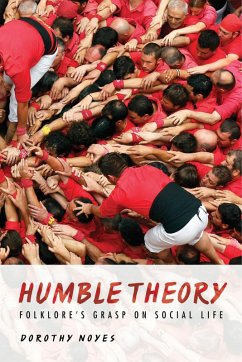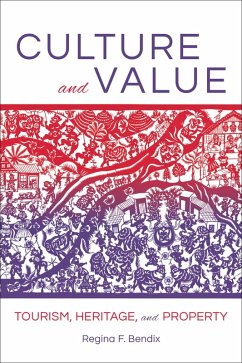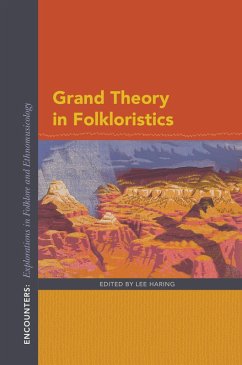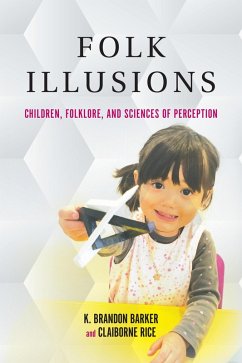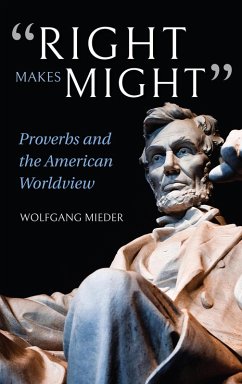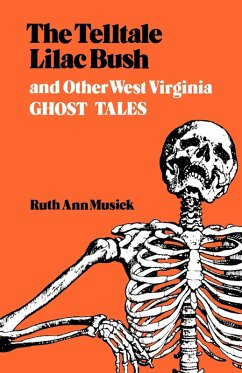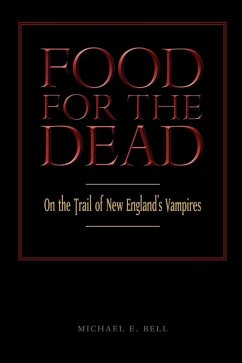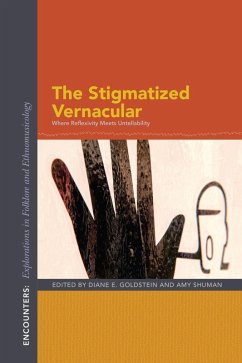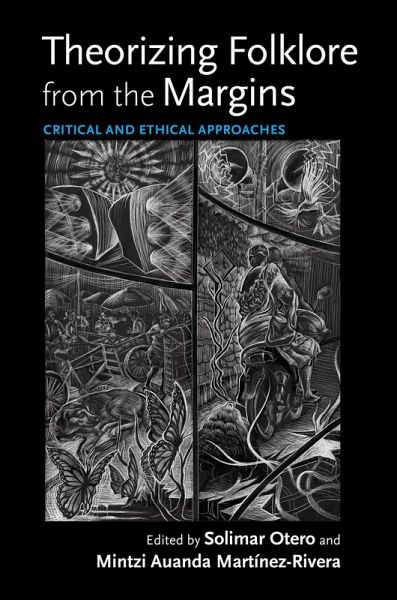
Theorizing Folklore from the Margins (eBook, ePUB)
Critical and Ethical Approaches
Redaktion: Otero, Solimar; Martínez-Rivera, Mintzi Auanda
Versandkostenfrei!
Sofort per Download lieferbar
23,53 €
inkl. MwSt.
Weitere Ausgaben:

PAYBACK Punkte
0 °P sammeln!
The study of folklore has historically focused on the daily life and culture of regular people, such as artisans, storytellers, and craftspeople. But what can folklore reveal about strategies of belonging, survival, and reinvention in moments of crisis?The experience of living in hostile conditions for cultural, social, political, or economic reasons has redefined communities in crisis. The curated works in Theorizing Folklore from the Margins offer clear and feasible suggestions for how to ethically engage in the study of folklore with marginalized populations. By focusing on issues of criti...
The study of folklore has historically focused on the daily life and culture of regular people, such as artisans, storytellers, and craftspeople. But what can folklore reveal about strategies of belonging, survival, and reinvention in moments of crisis?
The experience of living in hostile conditions for cultural, social, political, or economic reasons has redefined communities in crisis. The curated works in Theorizing Folklore from the Margins offer clear and feasible suggestions for how to ethically engage in the study of folklore with marginalized populations. By focusing on issues of critical race and ethnic studies, decolonial and antioppressive methodologies, and gender and sexuality studies, contributors employ a wide variety of disciplines and theoretical approaches. In doing so, they reflect the transdisciplinary possibilities of Folklore studies.
By bridging the gap between theory and practice, Theorizing Folklore from the Margins confirms that engaging with oppressed communities is not only relevant, but necessary.
The experience of living in hostile conditions for cultural, social, political, or economic reasons has redefined communities in crisis. The curated works in Theorizing Folklore from the Margins offer clear and feasible suggestions for how to ethically engage in the study of folklore with marginalized populations. By focusing on issues of critical race and ethnic studies, decolonial and antioppressive methodologies, and gender and sexuality studies, contributors employ a wide variety of disciplines and theoretical approaches. In doing so, they reflect the transdisciplinary possibilities of Folklore studies.
By bridging the gap between theory and practice, Theorizing Folklore from the Margins confirms that engaging with oppressed communities is not only relevant, but necessary.




